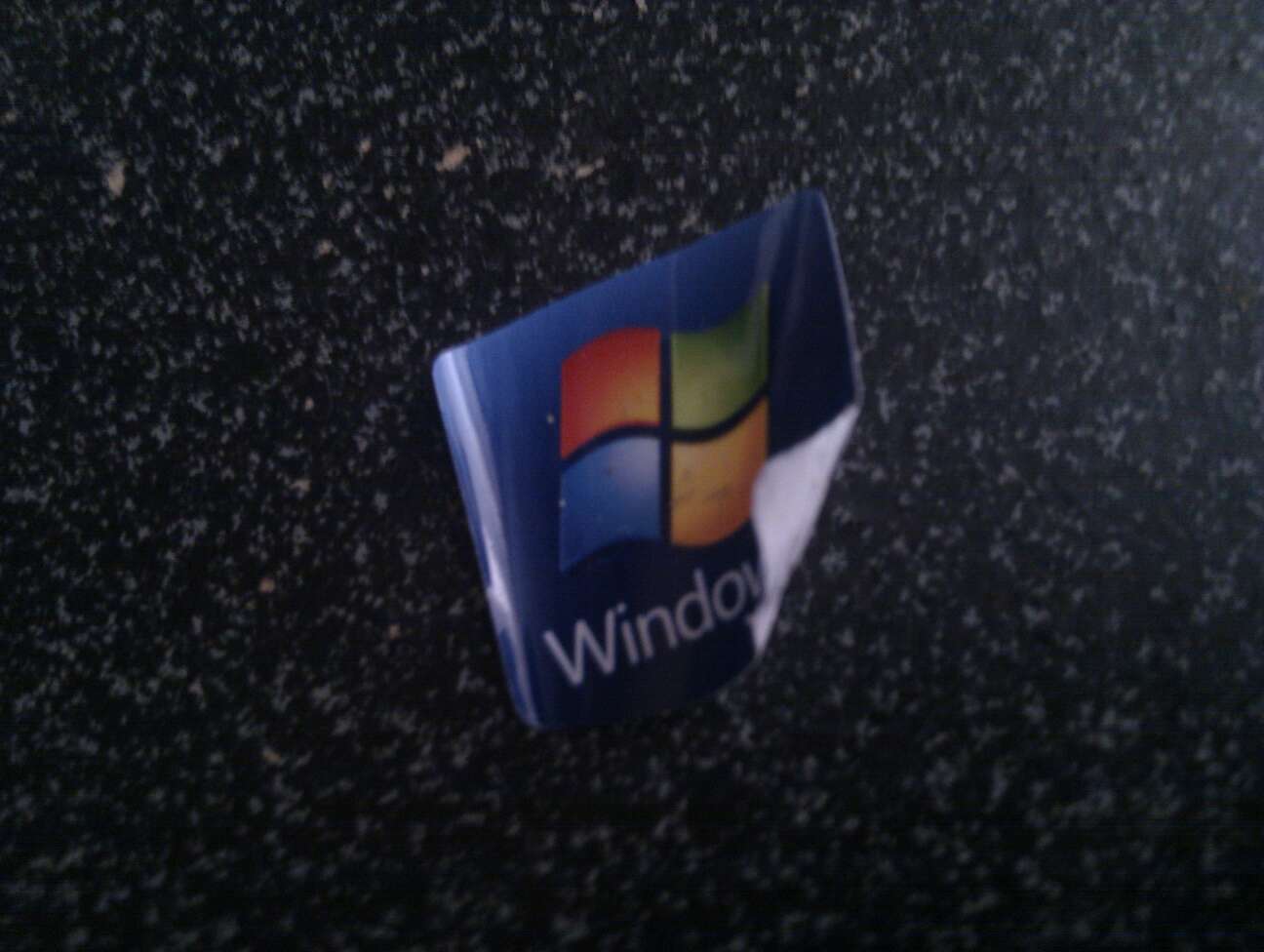08.23.10
Posted in Asia, Hardware at 6:14 am by Dr. Roy Schestowitz

Summary: The latest news which puts Microsoft’s Xbox 360 in a tough position while Nintendo is clearly a leader
XBOX 360 is a financial fiasco that cost Microsoft billions of dollars in losses. Now that game sales stall and games like FarmVille vanish from MSN Games [1, 2], maybe it’s time for Microsoft to stop sniffing Halo ‘leaks’ and producing more vapourware/fake ‘leaks’ of Office.
Maybe it’s time for Microsoft to realise that much of the world (except the United States) does not care about the Xbox franchise and Xbox 360 will remain banned in China [1, 2] (covered here before for the irony of Chinese manufactured cargo being banned in China) because it’s too late in this game and it’s too aggressive/dangerous. This strategy won't work for phones, either.
Watch Microsoft go into ‘damage control’ mode [1, 2, 3, 4] after Xbox 360 lost an "exclusive" and Kinect got downgraded in some ways, further strengthening the suspicion that KINect will fail just like KIN [1, 2]. Losing an “exclusive” is bad enough, but what happens when Xbox 360 gets abandoned altogether?
Final Fantasy XIV for Xbox 360 ‘paused’
Recent rumors have suggested that the Xbox 360 version of Square Enix’s wildly anticipated Final Fantasy XIV has been canceled.
Even the silly hype about KINect is being shot down already [1, 2], not to mention the fact that KINect is merely a “me too” move, not an “innovation”. The first console to make proper use of such smart peripherals was the Wii and 45 months after it came to the market it sold 30 million units in a nation of about 300 million citizens. From the news;
The Wii took approximately 45 months to reach the “30 million units sold” milestone, making it the fastest-selling console of all time. The best-selling console of all time is Sony’s Playstation 2, which took 60 months to reach the 30 million mark.
Microsoft lost the consoles war a long time ago. The Xbox 360 might be the last product to ever come out of Microsoft to test absorption of DRM in the mass market. What a hallmark of restrictions in one’s own living room.
Microsoft is running out of steam in this market too. “Man who run behind car get exhausted,” Confucius says. “Man who run in front of car get tired.” █

Permalink
 Send this to a friend
Send this to a friend
Posted in Asia, Microsoft, Security, Windows at 5:25 am by Dr. Roy Schestowitz

What if Microsoft built their skyscrapers too?
Summary: Despite Microsoft’s utter failures in security (examples given from this month), UAE turns to Microsoft to bolster security
THIS SEEMS LIKE another great example of black comedy. “Microsoft to strengthen cyber security in UAE,” says this headline of an article which says that despite bad security record “Microsoft Inc. will work towards strengthening the security of information systems and networks in the United Arab Emirates (UAE).”
No sarcasm here.
Well, for those who know about Microsoft's relationship with UAE this would not be entirely shocking. But still, here we have a company that wilfully neglects to patch critical vulnerabilities until they are actively exploited (at which point it’s too late to do something about it). Microsoft’s nonchalance about security (and belated new patches) is a sign of its sheer arrogance. Here is Windows’ very latest zero-day flaw:
Zero-day Windows bug problem worse than first thought, says expert
Today, Kolsek said that Acros has been digging into a new class of vulnerabilities for months. It has found more than 200 flawed applications harboring more than 500 separate bugs, he added, noting that the company had reported its findings to Microsoft more than four months ago.
This is an issue that we mentioned before and it’s all over the news.
“Nobody knows the real number of flaws except Microsoft, which is often caught lying as long as it’s more profitable than truth.”Microsoft is not being frank about its patches (it’s shrouded in secrecy) and it admitted silent patching some months ago. It’s the practice of fixing serious flaws without ever announcing it, even after these flaws get patched. Did this month bring Microsoft’s biggest-ever patch? Well, not for sure. Nobody knows the real number of flaws except Microsoft, which is often caught lying as long as it’s more profitable than truth.
There is a good deal of news right now (e.g. [1, 2]) about Microsoft trying to increase profit by providing “mission-critical” support. That does include “critical” flaws, right? Either way, the thing about mission-critical support is it’s going to be needed and will be an alternative source of Microsoft revenue until customers find more reliable software stacks (Microsoft’s VLSC is/was ironically still down, as we mentioned last week for the fourth time [1, 2, 3]). But it’s another situation where Microsoft takes away business from so-called ‘partners’. This was already done when Microsoft launched stores, hardware products like a phone, anti-virus software, and so and so forth. Microsoft pretends to support its broken products and offer security services for its insecure software. UAE, please pay attention to the facts. █
Permalink
 Send this to a friend
Send this to a friend
Posted in Europe, Microsoft, UNIX, Windows at 4:42 am by Dr. Roy Schestowitz

Summary: By getting rid of Windows and other Microsoft software, not only will the police improve security of its systems but it will also be able to employ more cops
THE OTHER day we named PCS for the issue of Windows in the British public sector. It’s a money drain which surely results in unnecessary layoffs and degradation in services that the public pays for.
“I have some details about the computer system,” wrote to us one anonymous reader. “I’ve found a Wiki page giving the details [so] it’s public knowledge [...] The system is Unix for the PNC” (Police National Computer). To quote:
“The PNC currently is based on a Fujitsu Siemens S-190 mainframe running the BS2000 operating system with recent PNC applications held on UNIX servers. Currently there are around 26,000 directly connected terminals and 25,000 terminals which are connected via local police force computer systems. The mainframe is connected to the end user by a multitude of ways, for high volume users (i.e. other police forces) via secure IP network, for low volume users a secure dial-up link provided by Cable & Wireless. Another connection method is via an X.25 packet-switched network, this method is currently being phased out. Databases for vehicles and driver licences are copied from the DVLA databases in the early morning (there is no service loss when an update is in progress). The mainframe server is located at the Hendon Data Centre with back-up servers located around the UK.”
“It is absolutely not acceptable to hide the bill from the very same people who pay this bill.”Well, at least they are smart enough not to put Windows in the back end. But what about the front end? What do the terminals use? Wouldn’t the “Windows link” on the desktop be the biggest weakness, especially since (as documented in the public domain) government bodies are still using Internet Explorer 6?
As the next step we wish to inquire about how much police forces are spending on Microsoft licences. This is well within one’s right to request under the FOIA (freedom of information act) unless they too ‘pull a BECTA’ by signing Microsoft deals where part of the deals is that the deals must absolutely remain secret/cryptic when it comes to cost. It is absolutely not acceptable to hide the bill from the very same people who pay this bill. Can anyone access information about the cost of Windows in the British police (not just/necessarily PNC)? In these times of belt-tightening this figure would probably be relatively astronomical, especially for software which requires a lot of maintenance and occasionally exposes sensitive data. Based on some general information that’s out there, nation-wide there would be at least 200,000 machines owned by the police, all requiring licensed software from Microsoft (not just Windows). People outside the UK probably have the exact same problem, so it’s worth investigating and speaking out about. █
Permalink
 Send this to a friend
Send this to a friend
Posted in Antitrust, Asia, Deception, Europe, Google, Microsoft, Search at 4:08 am by Dr. Roy Schestowitz

Summary: Microsoft whines about Google because it cannot compete, not even with armies of AstroTurfers, fake statistics it pays for, and spurious complaints about Google “monopoly”
Microsoft is a top lobbyist in its area, but the “official” numbers [1, 2] hardly tell the whole story. Associated Press says: “Microsoft Corp. spent $1.85 million in the second quarter to lobby the federal government on software piracy, technology in health care and other issues, according to a disclosure report.”
“Not so long ago we saw Microsoft hiring secretive AstroTurfers in D.C. to shoot down Yahoo’s deal with Google.”Microsoft does not disclose a lot of lobbying and it has unregistered lobbyists (which makes comparative analysis of lobbying budgets highly irrelevant). It’s a subject we covered here many times before. The figures above are just symbolic numbers, intended to give the public an illusion of transparency and thus raise confidence in the government.
Not so long ago we saw Microsoft hiring secretive AstroTurfers in D.C. to shoot down Yahoo’s deal with Google. Right now we see something similar going on in Japan [1, 2, 3]. Microsoft has the nerve to complain to regulators about “monopoly” (in order to do this in Europe Microsoft uses “satellite proxies” as IBM calls them). Here is the latest about that:
Yahoo Inc. is committed to churning out Internet search innovations, including at Yahoo Japan, even after the independent affiliate’s decision to start using a search engine provided by rival Google Inc., a Yahoo executive said Tuesday.
According to Experian Hitwise (one of the few search engine market share assessors which are not paid by Microsoft), Microsoft and Yahoo! (Microsoft proxy) gain nothing on Google.
While Google continued to dominate the U.S. search market in July, Microsoft Bing outpaced the search giant in several verticals, including shopping. Statistically, the shares of the top four search engines for the four weeks ending Aug. 1 were unchanged from the previous four weeks, Experian Hitwise reported Wednesday. Google had a share of 71.43%, Yahoo 14.43%, Bing 9.86% and Ask 2.32%. The remaining 70 search engines accounted for 1.94% of U.S. searches.
Even comScore, which is paid by Microsoft [1, 2, 3, 4, 5, 6, 7, 8, 9, 10], is finally changing its method to no longer be gamed by Microsoft/Yahoo (and thus both Yahoo and Microsoft take a tumble and descend sharply). It’s well overdue because comScore knew it was being gamed but did nothing about it. It gave ammunition to its partner, Microsoft.
“It will be interesting to see how Microsoft uses Oracle to further cause damage to Google.”As further sign that Microsoft ‘search’ is going nowhere but down while Microsoft loses billions in this area, notice the strategic ‘revamp’/shake-up, which usually indicates that things are not working at present. Whenever Microsoft uses the term “reorganization” it’s just a euphemism that comes up because something went wrong, usually someone quitting (we gave examples of “reorganization” or “reorg” before and then explained the witty use of the term).
“Google Locks Horns With Oracle, Microsoft Watches Gleefully,” says this article about Oracle’s lawsuit [1, 2, 3, 4, 5, 6, 7, 8, 9, 10, 11, 12]. It will be interesting to see how Microsoft uses Oracle to further cause damage to Google. We have already given examples where Microsoft takes advantage of it. █
Permalink
 Send this to a friend
Send this to a friend
Posted in Antitrust, Europe, GNU/Linux, Microsoft, Windows at 3:29 am by Dr. Roy Schestowitz


“The hardest thing about replacing Windows 7 with Linux is getting the damn sticker off,” Tim wrote yesterday. (credit: OpenBytes)
Summary: Calling for everyone with an undesired Vista 7 [sic] licence to return it to the shop, claim a refund, and then post instructions for others to achieve the same thing
AN OLD talking point from Microsoft propagandists is that many people “choose” Windows and that Windows is “popular”. The truth of the matter is that people choose a computer, they don’t choose Windows (it just comes with it), so Windows is ubiquitous, not popular. To quote Intel exhibits, “There are simply too many folks at Intel who use/love the [Linux] stuff and want to improve it. We can *not* stop trying to win this project.”
“The principal issue here is that Microsoft fights against choice and diversity.”GNU/Linux is an exceptionally popular operating system. People who have actually used it for a considerable amount of time really like it. The same probably goes for Mac OS X, but that’s another story. The principal issue here is that Microsoft fights against choice and diversity. It actively discriminates and it promotes monoculture. The OEMs are not the sole example (some would label them “accomplices”).
Bear this in mind now that Microsoft exploits journalists who spread its “diversity” PR [1, 2, 3, 4], which is similar to “Imagine Cup” [1, 2, 3, 4] (Microsoft PR which is intended to make Microsoft look like a children’s friend). To quote one new example:
Microsoft employees volunteer to work the camp, according to MaryLynn Hilton, account technology strategist. It’s a fun three days for both employees and students, capped by a lively closing ceremony and goodie bags for the girls filled with Microsoft treats.
PR aside, Microsoft is one of the biggest offenders when it comes to diversity. See the Polish incident, Microsoft homophobia, and a variety of other recent examples.
This leads us to returning to the other day's discussion about Tim from Openbytes. He is actively working to get a Vista 7 refund and he posts publicly about his progress. It’s a tiring task. Here is how the refund is coming along so far. Microsoft and its partners give him a hard time, as expected. They don’t honour the law and they tried to drive the caller/complainer into desperation (patience battles and expensive calls), at which points they can be left alone rather than open the floodgates to similar refund requestors in the UK.
My first port of call was Microsoft customer services for the UK. After one of the all too common automated lines, I discovered that on a Saturday I was not going to get any human customer service on this number (unless, apparently, I am a Onecare customer – presumably paying more money to Microsoft. What I did find amusing whilst looking for the customer services number was that Microsoft has a sponsored link that will answer your questions online.
After getting no joy with the phone I was confident that my question could be answered quite simply, after all it was merely “How do I go about getting a refund on an unwanted Windows 7?”. After entering the question I was told there were advisors waiting to answer my question….for a price. Typical. Whilst it was a 3rd party company offering this “service” I should have known – when it comes to Microsoft products, you can never spend enough money.
[...]
I won’t delve into issues of Microsoft Tax. The subject has been covered enough.
I feel rather resentful that I have to buy a product with no choice as to if Windows is pre-installed. If that in itself was not bad enough, the fact that it’s not obvious on how you go about getting a refund. I wonder if Europe should have been looking into the OEM issue instead of messing around with browsers and ballot screens? Lets get our priorities right eh?
I am unsure when/if I will get a refund, but I will continue this quest until I get an answer (and update in future articles). Should I be successful I will be donating the refund to the FSF and at least then it won’t feel as if my great purchase has been slightly tainted by having to pay for unwanted Microsoft software.
One thing about the refund is, shovelware sometimes subsidises Vista 7, but it’s a real nuisance. There is a true cost to shovelware and one blogger calls for shovelware to be made illegal right now:
There oughta be a law against shovelware on new PCs
It’s been about three years since I’ve bought a pre-packaged PC. Normally, I build my own machines, switching out mobos, graphics cards, processors, and all the rest whenever I need. I also install my own clean OS, so what’s running on any given machine is what I purposely put on the machine.
But about every three years or so, it’s time to buy a new laptop. In this case, I’m doing coding, and the laptop I bought three years ago won’t accept any more RAM and I need a LOT more RAM (I’m running a bunch of simultaneous VMs, different browsers, local servers, IDEs, etc., and that all eats RAM like a stoner eats Cheetos).
My current laptop is also making some bad fan clacking noises that imply something’s about to break real-soon-now.
So I bought and took delivery of a machine that can handle up to 16GB of RAM (yep, cool, eh?). The thing is, this is a pre-packaged machine — you know, the way the typical consumer gets his computer.
After waiting forever for the new laptop to boot up for the first time, I finally had a desktop, a desktop filled with icons.
Shovelware.
Without shovelware, Microsoft would quickly become irrelevant because GNU/Linux as a preinstalled option would be highly appealing. Microsoft too has its share of shovelware, such as Internet Explorer which it puts on all new PCs (that run Windows). “Microsoft is running a monopoly and abusing customers,” says this new article.
For the last twelve years Microsoft has been running a monopoly and abusing customers. In their MSN email accounts they ask customers to verify their accounts by giving a mobile phone number even though some customers don’t have a mobile phone. This is discrimination and a violation of freedom of speech against account holders and the monopoly they hold is responsible because when they don’t have to compete they become abusive.
[...]
Microsoft lied by stating that the merging of Microsoft Windows and Internet Explorer was the result of innovation and competition.
The prosecution should have expanded their case into other areas of Microsoft and they should have documented abuses against customers.
The European Commission has attempted to address Web browser bundling, but why not operating system bundling? If you paid for a Vista 7 licence that is not being used, do try to get a refund and make a fuss about it in public. People should be given that option, but precedence is needed to make that fast and simple for others to replicate by citing prior incidents. █
Permalink
 Send this to a friend
Send this to a friend
Posted in Hardware, Microsoft, Windows at 2:37 am by Dr. Roy Schestowitz

Summary: By all indications it appears as though Microsoft/Windows mobile devices will nosedive into an abyss
Over the past two weeks we have come across not a single headline matching “kin” and just two matching “zune”, which is waiting to officially die after the so-called “Zune phone” (KIN or Pink) got cancelled [1, 2, 3, 4, 5, 6, 7, 8]. KIN was a legendary failure that reached oblivion within just weeks and the Zune’s operating system has no purpose anymore. It’s a zombie product right now. “Microsoft Gets Little From Zune Media Player,” says this headline from The Street and “Zune Media Player Doesn’t Move Needle on Microsoft’s Stock,” claims another article. The Zune is not advertised, either. For those who wonder why some Microsoft products suddenly make the news sometimes, it’s all PR. Microsoft agents are merely using journalists, pumping gifts and applying pressure in order to shape the news and give the illusion that people should really care. Silverlight is an example of this because it's dying despite the fact that Microsoft PR agents had the press pretend it would succeed. It’s all hypnosis.
“They are trying to appeal to game developers because suddenly it’s Microsoft that suffers a gaming drought.”In spite of the unprecedented failure of KIN (“Microsoft’s Kin Smartphones Could Eclipse Windows Phone 7,” said this old headline from Microsoft Nick before it launched), the ‘Microsoft press’ continues to post its hopeful articles about products that don’t matter anymore. These PR appendages that masquerade as “journalists” ought to be ignored really, but there are just too many of them and those who don’t comply with PR won’t be groomed and thus perish.
Microsoft’s latest PR offensive for phones is centered around “games” — not that Vista Phone 7 [sic] actually has any games, it’s just an ambition that Microsoft has, accompanied by vapourware. These are tons of articles this month about Microsoft looking for game developers for a phones platform which totally lacks applications (Microsoft discarded backward compatibility). It has everything it takes for a recipe to say “disaster” on it. Microsoft is even appointing a “Mobile Gaming GM” for something that hardly exists. Loads of articles about it, like this one for example, contain more fantasy than substance. Are journalists genuinely naive enough to publish this stuff?
“Why Microsoft’s Mobile Gaming Strategy Is a Mistake,” says one sceptic. They are trying to appeal to game developers because suddenly it’s Microsoft that suffers a gaming drought. What a wonderful reversal. Windows is suddenly the (mobile) platform without any games. Linux/Android and Apple are where all the action is at. Windows Mobile (or whatever Microsoft chooses to call it these days) is doomed. And that’s a good thing. █
“In the future, Microsoft wants Windows to run everything, from PCs to phones to cars to appliances. This is a terrifying prospect. If it happens, I’d be far more afraid that machinery everywhere would grind to a halt, planes would fall out of the sky, and civilization would crumble as a result of crummy embedded Windows design than any Y2K problem.”
–Paul Somerson, PC Computing
Permalink
 Send this to a friend
Send this to a friend
Posted in Microsoft, Mono, Novell at 2:03 am by Dr. Roy Schestowitz

Summary: A commenter in mini-MSFT says that his/her “team got a direct message not to use the [Silverlight] technology.” Dynamic languages are also dying at Microsoft due to lack of interest from the public.
ONCE in a couple of weeks we count the occurrences of the term “Silverlight” in the news. It’s getting hard to find anything and Moonlight too is virtually gone by now. Silverlight was mentioned in just one news headline (comparison to Adobe Trash 10.1) in the past two weeks, so it slid into obscurity despite massive PR campaigns, sometimes from Novell. A few days ago someone called Alex told us in IRC: “hey, was reading minimsft’s latest blog’s comments, and stumbled onto this: ‘Anonymous said… Anyone know what the story is with silverlight? My team got a direct message not to use the technology. Received the same message in Windows Live. HTML 5 is P1.’”
For those who don’t know, mini-MSFT is where anonymous Microsoft employees typically comment. So, is Microsoft calling Silverlight off yet, maybe because of HTML5?
Last week and earlier this month we showed that Microsoft is also burying its dynamic languages [1, 2]. Here is more news coverage about it:
Microsoft’s decision to pay the salaries of several Ruby hackers was akin to a lawyer dating the bassist from a cool local band. Thus, it’s sad, but not surprising, to hear about the breakup: With the departure of Jimmy Schementi, Microsoft’s Ruby team is now down to one part-time developer.
These must be depressing times for Microsoft employees who work on projects like Silverlight and the attempts to “embrace and extend” Free/Open Source frameworks. █
Permalink
 Send this to a friend
Send this to a friend
Posted in Apple, Free/Libre Software, GNU/Linux, Google at 1:38 am by Dr. Roy Schestowitz
“We’ve always been shameless about stealing great ideas.”
–Steve Jobs
Summary: X.Org Server at risk of being under control by Apple, which continues to do distasteful things
MANY PEOPLE still remember what Apple did to KHTML. When it comes to Free software, Apple is primarily an exploiter. Last night we had a long discussion about this. Basically, there is danger that Apple will be pulling similar tricks against X, which a lot of Apple’s competition (and Microsoft’s competition) depends on heavily. “Apple Looks To Take Over X Server 1.9 Release Management,” says Phoronix. From the somewhat alarming post:
With yesterday’s successful release of X.Org Server 1.9 on time by Intel’s Keith Packard, most of the developers will now begin working towards X.Org Server 1.10. Like the past few X.Org Server releases, Keith Packard will go on to continue being the release manager for this new series. In the past there’s been the input-expert Peter Hutterer of Red Hat to handle the stable release management duties for the point releases, but he will not be handling it for the 1.9.x series and it looks like Apple may be taking over
We have already written about Apple’s parasitic approach when it comes to Free/Open Source software [1, 2]. But there are additional problems. For those who require a reminder, Apple too is becoming or has already become a monopoly abuser. Here is a very recent article:
Report: EU joining FTC Apple probe
[...]
The inclusion of the EU regulators means the investigation could now stretch “another four to six months” before the FTC reaches any official conclusions, according to the Post’s sources.
In other news, Apple’s sweat shops are hiring.
Apple’s China contractor plans to hire 400,000
Foxconn Technology Group, the Chinese contract manufacturer for Apple Inc. and other U.S. tech companies, reportedly plans to hire 400,000 new workers and move some operations closer to where they live.
Just don’t expect Apple to pay those people decently. The high margins will be used to make people like Steve Jobs richer while under-age workers commit to labour for 15 hours a day making cheap hardware. Apple then adds some revered logo to this hardware and triples the price, only to pocket the difference. But hey, Apple is at least exploiting some ‘free’ code (as in gratis, to Apple at least) in these devices which sweat shops manufacture in Asia. When it comes to Android, a lot of the profit at least goes to Asian companies (which unfortunately pay Microsoft for Linux sometimes). █

Permalink
 Send this to a friend
Send this to a friend
« Previous Page — « Previous entries « Previous Page · Next Page » Next entries » — Next Page »



























 Content is available under CC-BY-SA
Content is available under CC-BY-SA